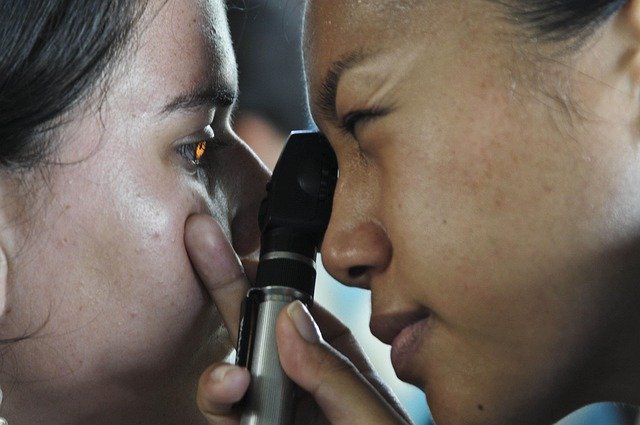Kidney Disease Treatment: Understanding Signs, Symptoms, and Options
Kidney disease is a serious health condition that affects millions of people worldwide. Early detection and proper treatment are crucial for managing the disease and preventing its progression. This article explores the signs and symptoms of kidney disease, as well as various treatment options available to patients. By understanding these aspects, individuals can take proactive steps towards maintaining their kidney health and seeking appropriate medical care when needed.

What are the early signs of kidney disease?
Kidney disease often develops slowly and without obvious symptoms in its early stages. However, there are several subtle signs that may indicate your kidneys are not functioning optimally:
-
Changes in urination patterns: You may notice increased frequency, especially at night, or changes in urine color and consistency.
-
Fatigue and weakness: As kidneys struggle to filter waste, you might feel more tired than usual.
-
Swelling in extremities: Fluid retention can cause puffiness in hands, feet, and ankles.
-
Dry, itchy skin: Buildup of waste products in the blood can lead to skin irritation.
-
Nausea and loss of appetite: Waste accumulation in the body can affect your digestive system.
It’s important to note that these symptoms can be associated with other health conditions as well. If you experience persistent symptoms, consult a healthcare professional for proper evaluation.
What are the 12 signs your kidneys are in trouble?
As kidney disease progresses, more noticeable symptoms may appear. Here are 12 signs that your kidneys may be in trouble:
-
Persistent fatigue and weakness
-
Swelling in legs, ankles, and feet
-
Shortness of breath
-
Chest pain or pressure
-
Confusion or difficulty concentrating
-
Decreased urine output
-
Blood in urine
-
Foamy urine
-
Persistent itching
-
Muscle cramps
-
Changes in skin color (pale or yellowish)
-
High blood pressure that’s difficult to control
If you experience multiple symptoms or have concerns about your kidney health, it’s crucial to seek medical attention promptly.
How are kidney disease signs and symptoms diagnosed?
Diagnosing kidney disease involves a combination of physical examinations, medical history review, and various tests. Common diagnostic methods include:
-
Blood tests: Measuring creatinine and blood urea nitrogen (BUN) levels can indicate kidney function.
-
Urine tests: Analyzing urine samples for protein, blood, or other abnormalities.
-
Imaging tests: Ultrasounds, CT scans, or MRIs can provide detailed images of the kidneys.
-
Kidney biopsy: In some cases, a small tissue sample may be taken for microscopic examination.
Early diagnosis is key to effective treatment and management of kidney disease. Regular check-ups and screenings, especially for those with risk factors like diabetes or hypertension, can help detect kidney problems before they become severe.
What are the primary treatment options for kidney disease?
Treatment for kidney disease varies depending on the underlying cause and severity of the condition. Some common approaches include:
-
Medications: To control blood pressure, manage diabetes, or address specific kidney-related issues.
-
Dietary changes: Reducing sodium, potassium, and protein intake may be recommended.
-
Lifestyle modifications: Quitting smoking, limiting alcohol consumption, and maintaining a healthy weight.
-
Dialysis: For advanced kidney disease, dialysis may be necessary to filter waste from the blood.
-
Kidney transplant: In severe cases, a kidney transplant may be the best long-term solution.
Your healthcare provider will work with you to develop a personalized treatment plan based on your specific condition and needs.
How can kidney disease progression be slowed or prevented?
While some causes of kidney disease are not preventable, there are steps you can take to protect your kidney health and slow disease progression:
-
Control underlying conditions: Manage diabetes and high blood pressure effectively.
-
Maintain a healthy lifestyle: Exercise regularly, eat a balanced diet, and avoid smoking.
-
Stay hydrated: Drink adequate amounts of water daily.
-
Limit alcohol consumption: Excessive alcohol can damage kidneys over time.
-
Be cautious with medications: Follow dosage instructions and avoid overuse of over-the-counter pain relievers.
-
Regular check-ups: Schedule routine medical examinations to monitor your kidney function.
By adopting these practices, you can significantly reduce your risk of developing or worsening kidney disease.
What support is available for individuals with kidney disease?
Living with kidney disease can be challenging, but various support systems are available to help patients and their families:
-
Patient education programs: Many hospitals and clinics offer resources to help patients understand and manage their condition.
-
Support groups: Connecting with others who have kidney disease can provide emotional support and practical advice.
-
Nutritional counseling: Dietitians can help create meal plans tailored to kidney health needs.
-
Mental health services: Counseling or therapy can assist in coping with the emotional aspects of chronic illness.
-
Financial assistance programs: Some organizations offer help with medical expenses related to kidney disease treatment.
Utilizing these support services can greatly improve quality of life and treatment outcomes for individuals living with kidney disease.
In conclusion, understanding the signs and symptoms of kidney disease is crucial for early detection and effective treatment. By recognizing potential warning signs, seeking prompt medical attention, and adopting healthy lifestyle practices, individuals can take proactive steps to protect their kidney health and manage the condition if it develops. Remember, regular check-ups and open communication with healthcare providers are essential components of maintaining overall well-being and preventing complications associated with kidney disease.
This article is for informational purposes only and should not be considered medical advice. Please consult a qualified healthcare professional for personalized guidance and treatment.




